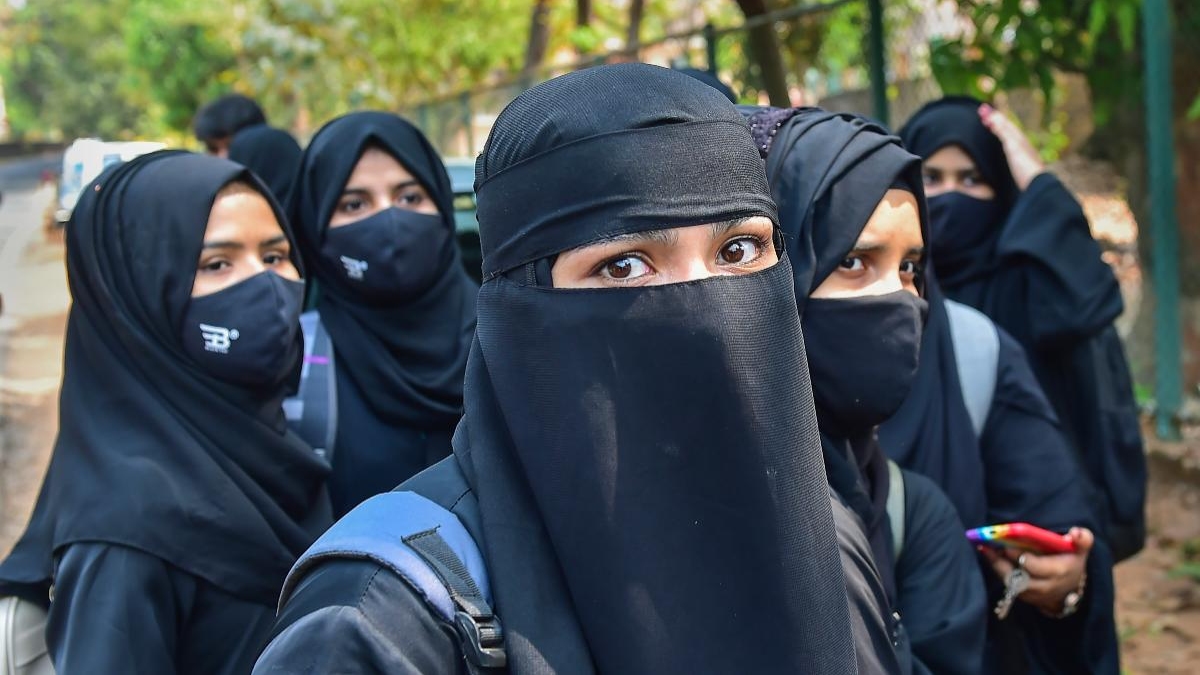On Wednesday, the Bombay High Court declined to intervene in a city college’s choice to prohibit hijabs, burkas, and niqabs on its campus. A division bench comprising Justices A S Chandurkar and Rajesh Patil stated their reluctance to interfere with the college’s decision and dismissed a petition brought by nine female students, all enrolled in the second and third years of a science degree program.
Earlier this month, the students approached the High Court to challenge a directive from the Chembur Trombay Education Society’s NG Acharya and DK Marathe College. The directive imposed a dress code prohibiting the wearing of hijabs, naqabs, burkas, stoles, caps, and badges within the college premises. The petitioners argued that this directive violated their fundamental rights pertaining to religious practice, privacy, and personal autonomy.
Claiming that the directive violated their fundamental rights to religious practice, privacy, and personal choice, the plea described the college’s action as arbitrary, unreasonable, legally flawed, and unjust. Advocate Altaf Khan, representing the petitioners, distinguished this case from the Karnataka High Court’s ruling on the hijab ban in junior colleges, emphasizing that it involves senior college students who adhere to a dress code rather than a uniform.
Khan contended that the dress code was implemented informally via WhatsApp without proper legal authority, contrasting it with the Karnataka case where a longstanding uniform policy was enforced. He asserted that the imposition of the dress code infringed upon rights to autonomy, bodily integrity, and freedom of choice.
To see in this article
The girls also brought their concerns regarding the notice to the attention of the chancellor, vice chancellor of Mumbai University, and the University Grants Commission. They requested these authorities to intervene “in order to uphold the principle of providing education to all citizens without any discrimination.
Photo credit : rediff
During the university’s legal review of the writ petition, concerns were raised about its validity, contrasting it with a similar case in Karnataka involving a government order on the hijab ban, which implicated a State entity.
Khan’s repsonse
In response, Khan countered that the petitioners had peacefully worn hijabs for two years without issue, questioning the abrupt allegation of disharmony. He asserted that the ban contravenes Articles 19 and 21, as well as the Puttaswamy judgement on privacy rights. Khan stressed that the case focuses on the specific grievances of the petitioners rather than broader public interest. He argued that the hijab is a part of Indian culture and criticised the lack of justification for the dress code.
Khan referenced various guidelines and policies aimed at enhancing educational access for students from SC, ST, OBC, and Muslim communities, arguing that the newly imposed dress code hinders this access. He maintained that the ban violates Articles 19 and 21, as well as the principles established in the Puttaswamy judgment.
The petitioners, enrolled as second and third-year students in B.Sc and B.Sc (Computer Science) programs at NG Acharya and DK Marathe College of Art, Science, and Commerce, assert that the college’s recent dress code infringes upon their fundamental rights to privacy, dignity, and religious freedom. According to their petition, all the petitioners, who are female students, have been wearing niqabs and hijabs both within and outside the college premises for several years.
Recently, the college issued an undated notice titled “Instruction for Students” on its website and through WhatsApp, mandating a dress code that explicitly prohibits the wearing of burkhas, niqabs, hijabs, caps, badges, and stoles. The petitioners argue that these directives are unlawful, arbitrary, and unreasonable, contending that they lack statutory authority and violate their rights guaranteed under Articles 14, 19, 21, 25, 26, and 29 of the Constitution of India.
Siddaramaiah’s move
On December 22, Karnataka Chief Minister Siddaramaiah announced that his government intended to rescind the ban on wearing hijabs in educational institutions in the state. However, he clarified the following day that the government was still deliberating on whether to revoke the ban. As of now, the Karnataka government has not issued a formal order regarding this issue.
